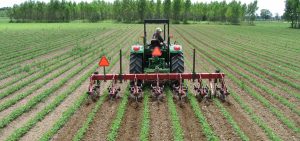
As I begin to reflect on my job at the Kellogg Farm, I’ve discovered from some of the people that I’ve met, that farmers have similar characteristics. Many people think of a farmer as someone who wears overalls and a plaid shirt, while riding around on a tractor all day doing farm tasks. Some of that may be true, but there is a lot more to farming than people may think! I grew up in an agriculture-based town so I have heard farm talk and my grandparents were dairy farmers so I saw farming on a short term basis, but I have never lived on a farm, so I’ve had a lot of learning to do while working on a farm!
The first characteristic of a farmer is that they are quite smart. Can you tell me the formula on how to calibrate a planter for soybeans and then correctly input that number into the GPS system in the tractor? Yeah, didn’t think so. Quite a bit of math skills are needed to understand which variables to use for the particular field you are planting to get the optimal yield. Add that together with the cost of all these variables to understand what profit you will achieve with the harvest, which will contribute to a higher profit margin. Farmers are also problem solvers. Tractor won’t start? Corn seems shorter than usual? They are quick to start thinking and review previous year’s information so steps can be developed and taken to solve the present issue.
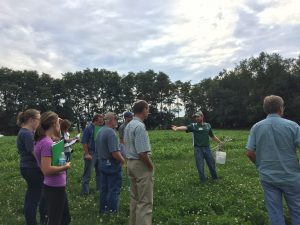 Farmers are planners. They are always thinking about the future. Even though many farmers may not love to use this word, sustainability is a huge part of how they operate and run their agriculture system. By rotating crops like corn and soybeans, they can help restore the nutrients that may have been lost within the soil and rebuild the soil health. Farmers want to be able to maximize the land they are using in an efficient way so they can count on long-term use of the land and work to create higher yields. They are also thinking about what has to be done next on the farm to make sure all the operations are running efficiently and not wasting time or money.
Farmers are planners. They are always thinking about the future. Even though many farmers may not love to use this word, sustainability is a huge part of how they operate and run their agriculture system. By rotating crops like corn and soybeans, they can help restore the nutrients that may have been lost within the soil and rebuild the soil health. Farmers want to be able to maximize the land they are using in an efficient way so they can count on long-term use of the land and work to create higher yields. They are also thinking about what has to be done next on the farm to make sure all the operations are running efficiently and not wasting time or money.
With that being said, farmers are always learning. Continuous research is being done by people like my bosses, Dr. Brook Wilke, Kellogg Farm Manager, and Dr. Dean Baas, MSU Extension Educator, to educate farmers on the best ways to integrate cover crops and reduce tillage on their fields so they can increase yields of their crops, improve soil health and reduce diseases/pests. A lot of farmers realize that their “old way” of doing things might not be working anymore and want to be up to date on the latest research so their agriculture systems can be improved.
Another characteristic of farmers is that they are kind hearted. Some of them may 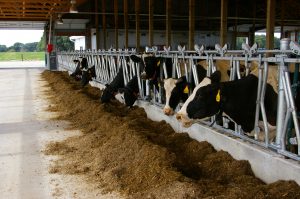 have a hard or rough exterior, but they really care about the animals and crops they are raising. Farmers put a lot of their time and energy into making sure animals are properly cared for and that crops are growing well with the resources they have. The last thing they want people to think is that they are destroying the environment or treating animals unfairly.
have a hard or rough exterior, but they really care about the animals and crops they are raising. Farmers put a lot of their time and energy into making sure animals are properly cared for and that crops are growing well with the resources they have. The last thing they want people to think is that they are destroying the environment or treating animals unfairly.
That point leads me to say that farmers are some of the hardest working people I’ve met. Day in and day out, they work in all types of weather to get jobs done. Most of the time, they’re up at the crack of dawn getting ready for their day and they might not leave the farm till the sun goes down at night. During the summer, there is a lot going on and they need to make sure everything is able to get done to meet their deadlines. That means working on the weekends and holidays is sometimes the only option to get crops planted or harvested, which often means they miss spending time at home with their families.
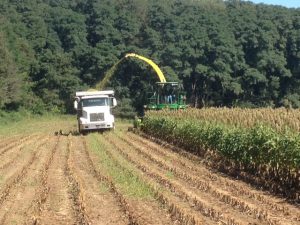 Lastly, another characteristic I’ve discovered is that farmers are wise. Even 30-year veteran farmers know how to apply their knowledge to the ever-changing world around them. This information can include anything from crops, soil, the equipment, and they gladly share this knowledge with others. No matter what their age, they will teach you a lot about working on a farm. I had very little clue about how to drive a tractor before this summer and now I’m able to help rake and clip pastures because they were willing to teach me and pass on some of their knowledge to me! If you’re curious about something within the field of agriculture, ask a farmer! Most of the time, they’re more than happy to talk to you about your curiosity and will probably even invite you out to their farm for you to see firsthand.
Lastly, another characteristic I’ve discovered is that farmers are wise. Even 30-year veteran farmers know how to apply their knowledge to the ever-changing world around them. This information can include anything from crops, soil, the equipment, and they gladly share this knowledge with others. No matter what their age, they will teach you a lot about working on a farm. I had very little clue about how to drive a tractor before this summer and now I’m able to help rake and clip pastures because they were willing to teach me and pass on some of their knowledge to me! If you’re curious about something within the field of agriculture, ask a farmer! Most of the time, they’re more than happy to talk to you about your curiosity and will probably even invite you out to their farm for you to see firsthand.
In the end, the next time you visit the grocery store, take a minute to stop and think about how that food got there and appreciate that someone chose to make a living to put food on your table. I’m excited to continue to work in the field of agriculture and learn more from farmers and industry professionals about how to continue to produce food to feed the future.

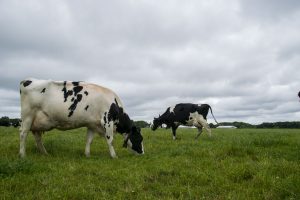
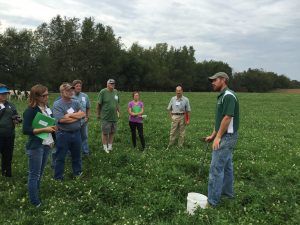
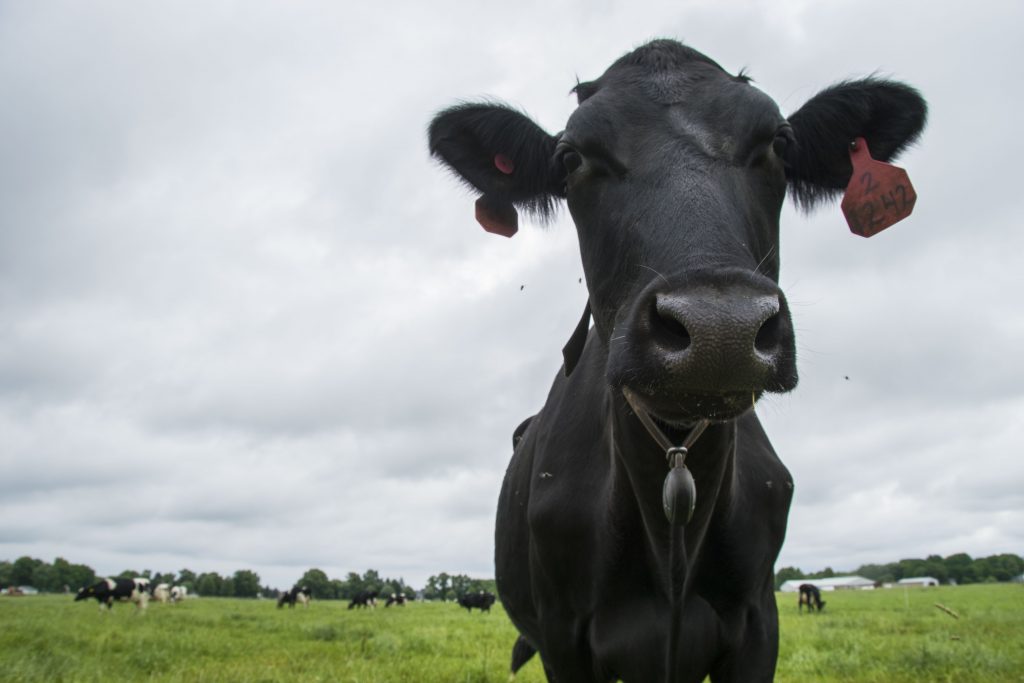
10461 N. 40th St.
Hickory Corners, MI 49060
(269) 671-2402
kelloggfarm@kbs.msu.edu